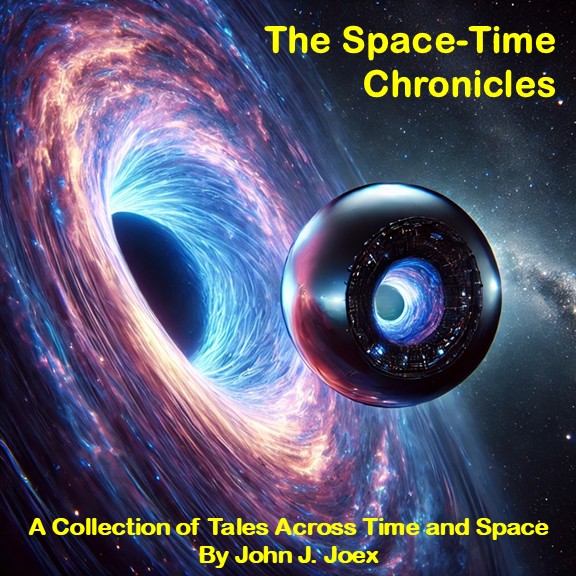The animated series Star Trek: Prodigy was recently cancelled by Paramount+ as part of a cost-cutting measure at the streaming service (more on that at this link), and it was also removed from streaming almost immediately after the announcement. The axing of that show along with several non-genre originals by that streamer is being referred to as a “write-down” (or sometimes a “write-off”) and not many people understand what that means or its implications. Basically, it is a tax deduction for the company, but it goes much further than that and it has claimed multiple sci fi and fantasy shows over the past couple of years. And with the bubble on the verge of potentially bursting for Peak TV, more shows will likely fall to the write-down monster, some on a very permanent basis.
What Is a Write-Down?
I am no tax expert, nor do I know all the specific legalize around it, but as I said above a write-down is a type of tax deduction. The company writes off the dollar amount that they value the property at (i.e. the amount of money spent on Seasons 1 and 2 of Star Trek: Prodigy possibly netted against some revenue gains) as a loss, and that reduces the amount of revenue for which they have to pay taxes. But in order to do the write-down, they have to expunge it from their catalog. So cancelling a show is not enough. They have to also remove it completely from the service.
As a further example of the write-downs, let’s go back to what Warner Bros Discovery did last year with the Batgirl movie. When that entertainment conglomerate decided to shake things up with the DC Universe, they cancelled that film–which had been completed–and called it a write-down instead of releasing it to theaters. They decided to write off the production costs because they did not have much faith in the movie due to the negative reactions from early test screenings. It was also not in line with future plans for the DCEU. Basically, a $90 million movie got tossed into the trashcan and will never see the light of day so that a mega-corporation can save a few bucks.
Now let’s look at an even more chilling example, again involving Warner Bros Discovery. Final Space is an animated sci fi comedy that first premiered on TBS in 2018 and that ran for three seasons. It developed a cult following, though it never became a huge hit and it was cancelled after its third year. But in 2022, Warner Bros Discovery decided cancellation was not enough and basically erased it from existence to count it as a write-down. It was pulled from streaming and will not be made available again anywhere (more on that at this link). Imagine if the same had happened with Star Trek: Prodigy. Or The Expanse (which was saved from cancellation by Amazon). Or Firefly. Or for that matter, the original Star Trek that was cancelled many years ago. All just to make a company’s balance sheet look better.
Why Are These Write-Downs Happening?
The simple reason these write-downs are happening is to pay less taxes and to save on the bottom line. But there is much more to it than that. The more honest reason is that the entertainment industry got greedy during the Peak TV era, and now that they are paying the price, they are trying to find creative ways to save money.
The number of scripted originals has been steadily increasing over the past twenty-plus years (with only a slight dip in COVID-impacted 2020), and the money going into those productions has been on the rise as well. With streaming services like Netflix, Prime Video, Disney+, and HBO Max all getting into the scripted originals game over the past decade, the competition has been fierce to draw in new subscribers. This has meant not only more content, but also high-profile, lavish productions that bring a lot of attention. But there are only a finite number of viewers out there and a limited number of hours in the day. At some point, the market had to reach saturation.
I have been saying this for a while and I will say it again: there is an iron law of economics that dictates the numbers can’t keep going up. However, that is quickly forgotten by economists and business leaders who should know better when the money is rolling in.
The number of scripted shows kept increasing and the amount spent on them ballooned as well, and now it is time to pay the price, especially among the streaming services and premium cable channels. Paramount+, HBO/Max, Disney+, AMC+, and more have been in cost-cutting mode over the past year or so and that has led the cancellations such as Prodigy (Paramount+), Westworld (HBO), The Nevers (HBO), Raised by Wolves (Max), Willow (Disney+), Moonhaven (AMC+), and more. And all of those shows have been removed from streaming/airing on their original services.
What Happens to the Shows Impacted by the Write-Downs?
The ultimate fate of shows that get kicked off the books as a write-down varies, but one thing is consistent. The streamer/network takes a content impairment charge to count it as a tax deduction and the show is removed from availability on that service. And not only does the company save money on taxes, they no longer have to pay residuals to the actors, writers, and other people involved with creating the show. After that, the show can follow several paths.
In the case of Star Trek: Prodigy, Paramount+ is shopping the property around to other venues. They can make money charging a licensing fee to another provider, and there is actually some hope that the show will be allowed to carry on into future seasons. In the case of HBO’s Westworld and The Nevers, those are no longer available on the premium cable channel or Max, but they have shifted to the free, live-streaming WB TV Watchlist channel which is available on Tubi TV and the Roku Channel. But neither those two nor Max’s Raised by Wolves are available On Demand.
In the case of Final Space, the show is cancelled from existence. Once the international streaming deal with Netflix ends, it will not be available anywhere, apparently forever. The first two seasons received a DVD release, but the third will not and the show will not be available VOD. I am not exactly sure why they followed that route with that particular show, but the implications should be concerning for all sci fi fans as other genre entries could go down that path as well. (I look at eight sci fi and fantasy shows impacted by write-downs at this link.)
What Is Next?
If you are unhappy with what has been going on so far and some of your favorite shows have fallen victim to write-downs, then I have no good news for you. If you have not been paying attention and are just now starting to understand the situation, then I have no good news for you. If you want to fight for these cancelled and cast out shows, then I have no good news for you. Basically, I have no good news for you.
Variety just put up an article saying that Peak TV has peaked, and the bubble could be bursting very soon (something I have been predicting for a while). The entertainment industry went on a spending spree, and now the bill has come due. (We are seeing something similar at the box office as well, but the reasons are not quite the same.) We will be seeing fewer and fewer lavish productions like The Lord of the Rings: The Rings of Power (Prime Video), House of the Dragon (HBO), and Andor (Disney+), and Netflix will be getting caught up in this before too long. (So far, most of that streamer’s cancellations have been mostly due to hubris.)
The high-dollar shows will not go away altogether, with LOTR: The Rings of Power and HotD continuing as planned for now, but fewer and fewer new productions will be getting a war chest to cover costs (and don’t be surprised if HBO eases back on its GoT spin-off plans). But even worse, more cancellations will be coming. The streaming services are just not making enough money on subscriptions to justify the amount of content or the bloated budgets, so they will have to make some cuts. Whether this will be a market correction or a full-on bursting of the bubble remains to be seen. And if these shows get sent down the write-down path, that makes it even more difficult for fans to try and save them.
The simple matter is that networks, streamers, and studios look at television shows as products, and the fact that people get very invested in these shows makes little impact on their business decisions. Sure, they will give you some corporate-speak BS saying that they care about the fans and want to do what is right for the shows. But if the savings to the bottom line are there, they will happily dispense with what is right in place of what will be a write-down. And they may be better off financially by dispensing with the show for the tax break rather than selling it to another venue.
The heyday of Peak TV is past us, and we should have seen it coming. Now the Reaper stands ready to take his toll. Stay tuned to this site as I follow this developing story in the coming months, and you can keep track of the status of your favorite sci fi TV shows at our Cancellation Watch Page.
Was one or more of your favorite shows impacted by the corporate cost-cutting and write-downs? Chime in with your thoughts in the comments section below.
CancelledSciFi.com: Keep up with the status updates of all the currently airing sci fi and fantasy shows with our Cancellation Watch posts. And be sure to follow the Cancelled Sci Fi Twitter Site for breaking news and updates.
SciFiTVSite.com: Follow our Sci Fi TV Schedule for all the currently airing and upcoming sci fi and fantasy television shows, and keep up with what is airing/streaming each week with our Weekly Listings.












Well written, Johnny. And informative. Great work! Sorry for myself and fans of these shows. I still haven’t seen the second half of The Nevers.